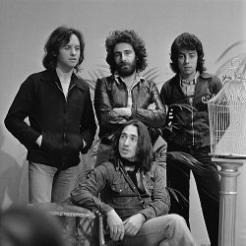Robert Ashton invokes Maslow's hierarchy of needs while pondering whether arts organisations should still receive public funding in the new age of austerity.
10cc released the hit single Art for Art's Sake in 1975; I was just 20 years old. In the same year, just three miles from my family home, Benjamin Britten was composing his final two works. He died the next year. But back then, although I'd obviously heard of Britten, I'd never listened to any of his music. My interest in the arts went no further than the current day's playlist on Radio Orwell.
So last week, I listened intently when a speaker at my local Community Foundation's annual bash presented evidence that early engagement with the arts boosts aspiration and academic achievement. Surrounded as I was by the local ‘great and good’, I wondered, not for the first time, if I had failed to reach my potential. What could my career path have been if I’d been better connected with the world around me?
The speaker, Peter Wilson MBE DL, is to performing art what I try to be to entrepreneurship; passionate, persuasive and successfully persistent. His own production company is responsible for the revival of Priestley's An Inspector Calls and the haunting Woman in Black. He is also perhaps the local establishment’s favourite 'luvvie.'
But where our worlds collide is on the local social enterprise stage. He runs a very successful provincial theatre. But he does much more than focus on esoteric performances for elitist audiences. His organisation is at the heart of many amazing arts projects that encourage the socially disadvantaged to gain confidence and ambition. I know, help and am occasionally paid by some of those organisations. I regularly see the difference they can make.
So how, when public sector funding for anything is fast disappearing, can the arts compete? After all, when food banks are popping up everywhere and homelessness is a growing problem, there appears to be bigger priorities. After all, Maslow explained more than 60 years ago, ‘esteem’ can only be influenced once we feel safe, fed and loved.
I’m struggling to find an answer and perhaps you are too. Should those using the arts to raise aspiration and esteem, widen their work to include those lost and living on the streets? Perhaps some already do? Is the problem that ‘arts’ is too broad a term and the impact of arts engagement is often difficult to measure? How can we enrich what might otherwise be seen as basic-need services with artistic activity and what would the impact be?
I’m hoping you can tell me, because one thing that I’m convinced of, is that it is clearly not just art for art’s sake!









